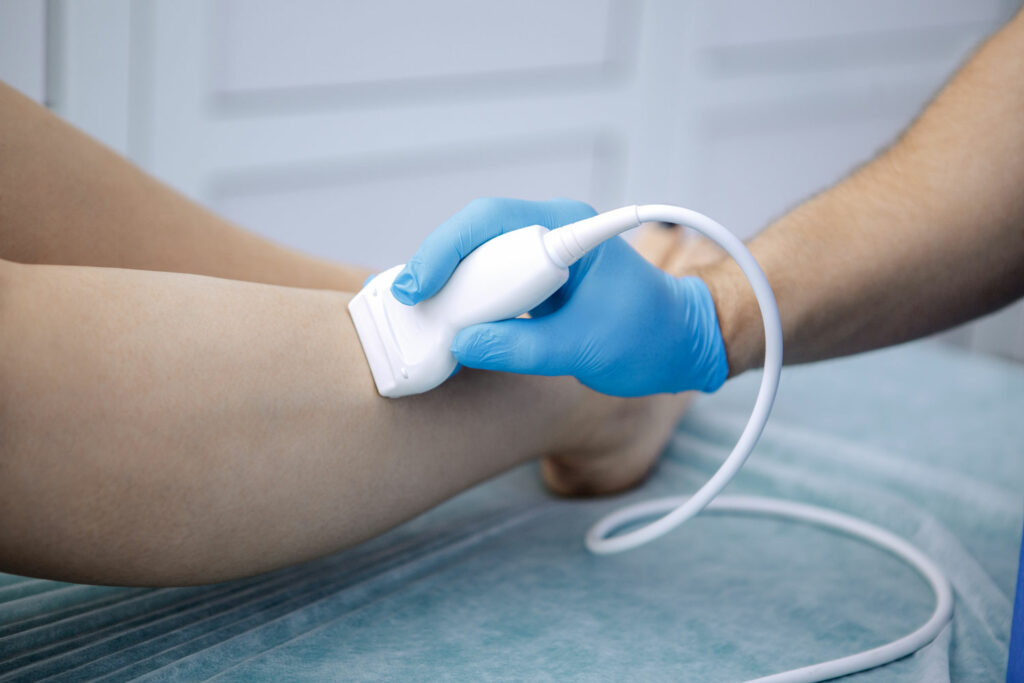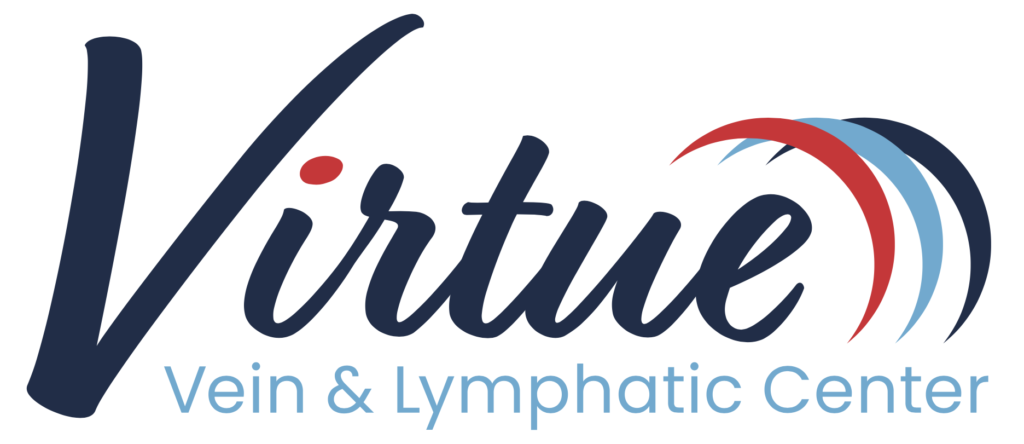Vascular Screening
Prevent Stroke or Cardiovascular Disease
with
a Simple, Painless Check of Your Blood Vessels
What is Vascular Screening?
It’s a simple, painless ultrasound that checks the health of your blood vessels. It looks for buildup of fatty deposits, called atherosclerosis, that can narrow your blood vessels and restrict blood flow.
It’s important to be screened if you have any risk factors. Most artery diseases don’t have any symptoms, but can become critical if left untreated.
Who Should be Screened?
Anyone who has:
- High blood pressure
- High cholesterol
- Diabetes
Obesity - Slow healing sores on feet or legs
- Pain in the limbs during exercise
- Family history of vascular disease
Conditions a Screening Can Find
Carotid Artery Disease
The carotid arteries in your neck supply blood to your brain. If atherosclerosis forms in the carotid arteries, it can cause a stroke. It’s important to screen for this, as a stroke may be the only symptom of this disease.
Symptoms of PTS
PAD is the narrowing of the peripheral arteries – the blood vessels which are farthest from the heart including the legs, arms and head. Blockages in these arteries can cause limb numbness, pain, and open sores. If it is severe enough, PAD may result in gangrene and amputation. People with coronary heart disease have a one-in-three chance of developing blocked arteries in the legs.
Abdominal Aortic Aneurysm
The aorta is the largest blood vessel in your body. It leads from the heart into your abdomen, where it branches off into two smaller arteries to supply blood to your legs. An abdominal aortic aneurysm is when the region of the aorta in the abdominal region swells and may potentially burst and cause heavy internal bleeding or sudden death.
Renal or Mesenteric Arteries
Renal arteries lead to the kidneys, and mesenteric arteries lead to the bowels and stomach. A renal blockage can cause kidney failure, hypertension, and heart failure. Mesenteric artery blockage can cause belly pain after eating and weight loss.

Vascular Screening Saves Lives
A vascular screening takes less than an hour and can help prevent issues that could put your life at risk. We recommend a screening every 2-3 years for good health and peace of mind.
Get Treated Sooner
Because we’re highly specialized, with seven treatment locations in the St. Louis area, we’re able to schedule your exam and treatment much sooner than other facilities. Call us at 314-956-1818 or complete this contact form to get started.
Schedule a Consultation
What To Expect
Screening
You’ll arrive early to fill out new patient paperwork, and get your vitals taken. We’ll provide a pair of shorts to change into for your exam. Dr. Krikorian will examine the visible veins in your legs.
What Happens if a Problem is Detected
We’ll schedule you for an ultrasound/other non-invasive diagnostic testing, possibly the same day if approved by insurance, and depending on our sonographers’ availability.
Recovery
Following the ultrasound you will either follow up in-office to discuss conservative treatment options (medication, compression therapy, etc.) or we’ll schedule you for a procedure, which may be in our office or our outpatient facility.

"No More Pain"
MaryAnn R.
My daughter could not believe how good my legs looked! She is going to see Dr. Krikorian too. I was completely satisfied with my treatment and am no longer in pain. The result is fantastic and I highly recommend going to see Dr. Krikorian if you are experiencing any leg pain.

"I Walked 2 Miles the Next Day!"
Shirley M.
I had suffered with varicose veins for years. I recently went to see Dr. Krikorian at Virtue Vein & Lymphatic Center where he told me everything I needed to know about vein disease and the treatment options. He performed a laser ablation on my diseased vein, and I was able to resume my normal activity the day after my procedure!

"They Listen Very Well!"
Jeff K.
Dr. Krikorian is a busy man, but he will take the time necessary to really listen to you and figure out what the problem is. Most doctors these days seem to be talking to the computer, and not the person. Well, here it is the other way around.

"Very Knowledgable!"
Happy Patient
After my stress test was normal, Dr. Krikorian explained that the test was around 70% accurate and that I should pay close attention to my body for any warning signs. A few weeks later I was exercising when my energy was zapped in less than 10 minutes and I had a pain under the sternum. I called Dr. Krikorian and he scheduled a cardiac catheterization the next day. He said I showed no sign of a heart attack but he found a 99% blockage in the circumflex artery, which he opened with a stent. I am grateful that he explained possible warning signs and then responded quickly with the catheterization and stent.

"My Leg is Feeling So Much Better!"
Marlene G.
Dr. Krikorian performed a laser ablation to treat the vein disease in my right leg. I didn’t even realize how much my left leg hurt from varicose veins until he fixed my right leg! I thought the treatment would be painful, so I was so pleasantly surprised to find that it wasn’t.
Vascular Screening FAQ
Do I need a vascular screening?
If you have any of the risk factors listed above, you should get a screening right away.
How often should I be screened?
We will make a recommendation after your initial screening, based on your results and risk factors. Most patients get screened every 2-3 years.
Is treatment covered by insurance?
Treatment is covered by the majority of insurance plans. We will contact your insurance prior to any testing or procedures to verify coverage.
Is the screening painful?
No, the screening is completely non-invasive and only consists of our physician looking at the veins from the surface of the skin.
Are there any risks to getting screened?
None.

